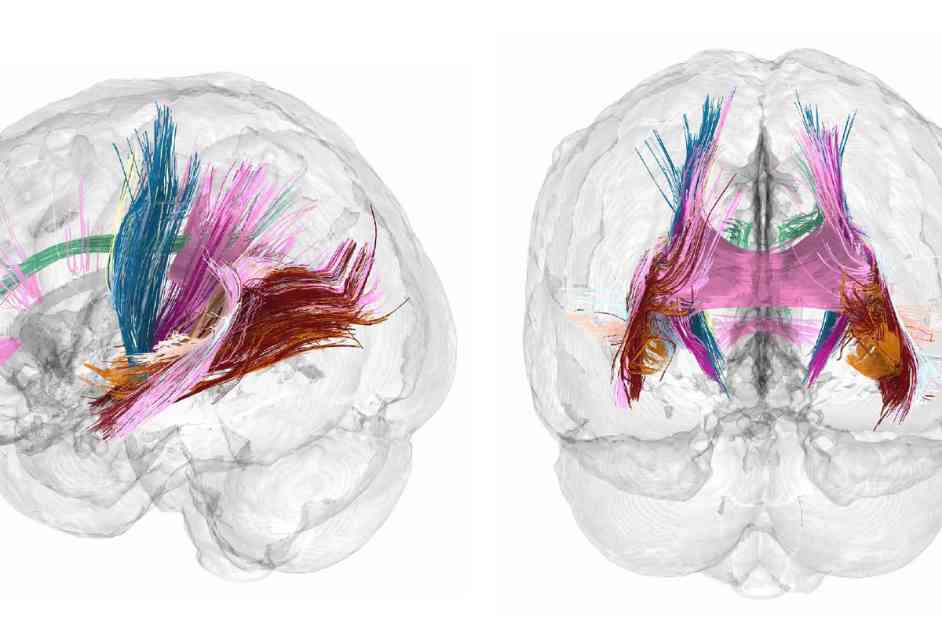Understanding the Complex Changes in the Brain During Pregnancy
Pregnancy is a miraculous journey that not only transforms a woman’s body but also her brain. Recent research has shed light on the significant changes that occur in the brain during pregnancy, providing valuable insights into the neurobiology of this unique experience. MRI scans taken before conception, throughout pregnancy, and up to two years after childbirth have revealed fascinating transformations in various regions of the brain.
According to the findings, some parts of the brain may undergo permanent changes during pregnancy, with the organ reorganizing itself to adapt to the demands of motherhood. While a few regions of the brain remain unaffected by the transition to motherhood, others show remarkable alterations in size and connectivity. These changes reflect the intricate interplay between hormonal fluctuations and the brain’s structural and functional adaptations during pregnancy.
The First Comprehensive Map of Pregnancy-Related Brain Changes
The study, published in Nature Neuroscience, presents one of the first comprehensive maps of changes in the brain before, during, and after human pregnancy. Researchers at the University of California analyzed the pregnancy-related brain changes of a healthy 38-year-old woman who underwent in vitro fertilization (IVF). Through 26 MRI scans and blood tests conducted from three weeks before conception to two years postpartum, the researchers meticulously tracked the brain’s transformations during this period.
Comparing the brain scans of the pregnant woman to those of eight non-pregnant individuals, the researchers observed intriguing patterns of change in the brain. By the ninth week of pregnancy, certain regions of the brain exhibited a reduction in volume and thickness, particularly in areas associated with social cognition. However, other parts of the brain showed increases in size and connectivity, correlating with the rising levels of estradiol and progesterone hormones during pregnancy.
Insights into the Long-Term Effects of Pregnancy on the Brain
The study revealed that some of the changes in the brain persisted even two years after childbirth, indicating the enduring impact of pregnancy on the organ’s structure and function. While some alterations, such as the shrinking of certain brain regions, remained evident postpartum, others reverted to pre-conception levels within a few months after delivery. These findings underscore the complexity of the neurobiological changes that occur during pregnancy and their potential long-term implications for maternal brain health.
Emily Jacobs, a researcher at the University of California, Santa Barbara, emphasized the importance of understanding the neurobiology of pregnancy to address critical health issues affecting women. Jacobs highlighted the historical neglect of women’s health in biomedical research and called for greater attention to the unique challenges and complexities of pregnancy-related brain changes. By uncovering the mysteries of the maternal brain, scientists can better predict and prevent conditions like postnatal depression and pre-eclampsia, ultimately improving maternal and child health outcomes.
A Personal Perspective on the Neurobiological Transition of Pregnancy
Elizabeth Chrastil, one of the authors of the study and the mother whose brain was mapped for the research, shared her subjective experience of pregnancy-related brain changes. As a neuroscientist, Chrastil found it fascinating to contribute to scientific research on the brain’s adaptations during pregnancy. Despite not experiencing significant cognitive differences during pregnancy, Chrastil acknowledged the documented changes in the brain and their potential implications for maternal well-being.
Chrastil’s involvement in the study highlighted the need for more comprehensive research on pregnancy-related brain changes to address gaps in understanding and improve healthcare outcomes for pregnant women. By leveraging advanced imaging techniques and longitudinal studies, researchers can elucidate the intricate mechanisms underlying the brain’s response to pregnancy and its impact on maternal mental health and cognitive function. This knowledge is crucial for developing targeted interventions and support systems for pregnant women and new mothers.
In conclusion, the groundbreaking research on pregnancy-related brain changes offers a glimpse into the complex interplay between hormonal fluctuations, structural adaptations, and functional reorganization in the maternal brain. By unraveling the mysteries of the maternal brain, scientists can pave the way for personalized healthcare strategies and interventions to support women during pregnancy and motherhood. The profound transformations that occur in the brain during pregnancy underscore the need for continued research and innovation to enhance maternal and child health outcomes.












